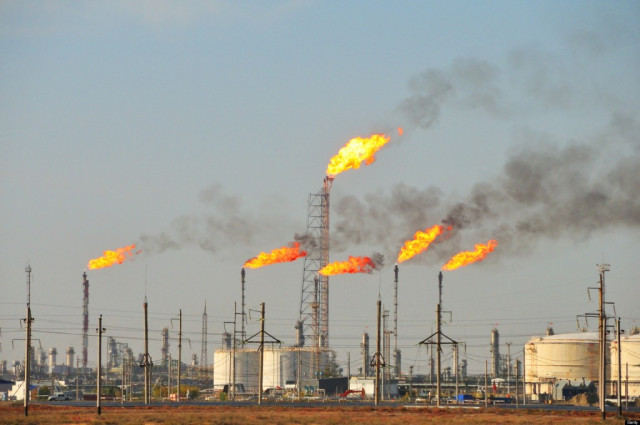The Nigerian Upstream Petroleum Regulatory Commission has announced that its gas-focused transition strategy aims to phase out routine flaring by 2030 and decrease methane emissions by 60% by 2031.
The commission's Chief Executive, Gbenga Komolafe, shared this information on Wednesday during the 24th Nigeria Oil and Gas Energy Week conference 2025.
In his keynote address for a session titled “Positioning Nigeria’s Upstream Oil & Gas for Energy Security, Sustainability and Economic Resilience,” he stated that the strategy would harness extensive gas reserves while generating thousands of green jobs.
He noted that this approach is backed by initiatives such as the Decade of Gas, the Nigeria Gas Flare Commercialisation Programme, and the Presidential Compressed Natural Gas (CNG) Initiative.
“Nigeria is enhancing its Liquefied Natural Gas capacity, implementing floating infrastructure, and spearheading cross-border pipeline projects to support not just its economy, but also Africa's industrial revival.
Additionally, Nigeria's Upstream Decarbonisation Framework reinforces this goal by incorporating emissions tracking, measurement, reporting and verification (MRV) systems, carbon capture technologies, and access to climate finance via carbon markets.
“These efforts are more than just policies; they present opportunities for investment, innovation, and inclusive growth,” he remarked.
Komolafe also referenced the inauguration of the Decarbonisation and Energy Sustainability Forum in March 2025, which coincided with the declaration of March 18 as Nigeria’s Upstream Decarbonisation Day.
He emphasized that this annual event would serve as a platform for stakeholders to monitor progress, exchange knowledge, and enhance climate-aligned development.
“Interestingly, we are transforming emissions reductions into revenue streams through a new ecosystem of carbon services, including monitoring, consulting, and technology deployment, while ensuring high levels of environmental and asset integrity,” he added.




















